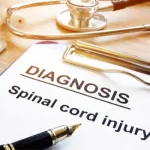
Image Source: FreePik
Did you know that the health of your mouth can impact the rest of your body? It’s true! Every year, dentists around the world end up saving lives by catching issues brought on by poor oral hygiene. While most oral problems are easy enough to identify, there are some issues that are vague enough to leave you scratching your head and clutching your jaw. We are, of course, talking about the common toothache. A toothache is any kind of pain that seems like it is emitting from your tooth. Whether that pain is constant and throbbing or short and sharp, you certainly won’t want to deal with it for long! Today, we are going to help you diagnose your toothache by laying out the ten most common causes of the problem, to begin with. We’ll also discuss ways that you can AVOID problems with your teeth altogether.
Common Causes of Toothaches
You’re about to sit down for lunch when you feel a sharp pain shoot up one of your back teeth. You take a drink of water and the pain seems to worsen! Oh no, there’s something definitely wrong with your teeth, but what? This is a position that countless people of all ages find themselves in. Even if you are studious with your oral hygiene, you can still run into a toothache. While an aching tooth may not be a death sentence, it certainly is indicative of a potential problem. Let’s look at some of the most common reasons for your aching tooth.
1. Cavity – Let’s go ahead and start with the most common cause of toothaches, cavities. A cavity is a hole that opens up in your tooth due to decay. What happens during this process is simple, the hard surface on the outside of your tooth, known as enamel, begins to break down. Cavities can become quite painful and if they aren’t treated, they can cause serious tooth decay. A cavity will typically start off as a slight pain before developing into something much more painful.
2. Bruxism – Do you grind your teeth when you sleep? Do you grind your teeth when you are stressed out? Many people have bruxism, but they don’t realize it. Bruxism is a problem that manifests when you are asleep. As you lose control of your body, you begin to grind your teeth or clench your jaw. Bruxism can lead to toothaches as well as serious damage to your teeth. If you suspect that you suffer from bruxism, talk to your orthodontist about getting a mouth guard.
3. Filling Fell Out – You would think that your cavity filling is there to stay, but that isn’t always the case! Decay around your filling can lead to the filling being ejected from its installation site. This is, of course, an incredibly painful situation. You’ll likely experience sharp pains as well as temperature sensitivity. If you suspect that your filling has been damaged, consult with your dentist immediately.
4. Impacted Wisdom Teeth – When your wisdom teeth come in, they aren’t always promised room to erupt. When there isn’t enough room in your mouth for your wisdom teeth, the rest of your teeth are forced to move in order to accommodate them. This process can cause your teeth to become misaligned. Additionally, an overcrowded mouth can lead to wisdom teeth that don’t fully erupt, thus causing lingering pain. In these situations, you’ll need to hire a dental surgeon to remove the teeth.
5. Improper Oral Hygiene – Do you brush your teeth up to three times a day? Do you floss? Do you stick to a regular hygiene schedule when it comes to your mouth? If you said no to any of these questions, then you might be contributing to your own oral problems. Tooth decay is a gradual problem that begins with you forgetting to take care of your teeth. Floss daily and pay attention to your brushing routine!
6. Lack of Hydration – Do you work out a lot? Does your job leave you sweating? If you aren’t staying properly hydrated, you could be contributing to your own oral problems. Your saliva is almost completely made up of water. When you don’t hydrate, you leave yourself with a dry mouth. Whenever your mouth is dry, you create an environment where cavities can flourish. Make sure to get your daily water intake while also drinking a little extra during exercise.
7. Fractured Tooth – A fractured tooth isn’t hard to vision or explain. Typically caused by violent force, a fractured tooth can leave you feeling immediate pain. If you hit your mouth or bite into something that causes tooth pain, you might need to see a dentist. Let the pain subside first, but if it doesn’t, call up your dentist’s office as soon as you can. A fractured tooth doesn’t just get better on its own.
8. Potential Abscess – If you allow tooth decay to continue to an advanced stage, you might find yourself in a painful situation. A tooth abscess is an inflamed pocket along your gum line where decay, debris, or trapped food ended up creating an infection. You’ll typically notice swelling around the problematic site as well as potential pus. Don’t let an abscess linger, seek out an appointment with your dentist immediately.
9. Temperature Sensitivity – Does taking a cold drink of water leave you gasping for breath from pain? Temperature sensitivity in your teeth is a real thing. Typically, temperature sensitivity is the result of gum disease, worn down tooth enamel, or even a recent teeth whitening procedure. If you are feeling sensitivity, consult with your dentist. You’ll likely have your teeth examined while also getting special toothpaste to help calm down the pain.
10. Gum Disease – If you don’t take care of your mouth, you will end up with gum disease. Gum disease results in red gums that are quick to bleed. Additionally, gum disease can lead to frequent tooth pain all around your mouth. You can’t let gum disease go untreated as it can lead to serious infections.
Taking care of your mouth should always be a priority. So much of your overall health can be traced back to the quality and consistency of your oral hygiene. Don’t wait for dental problems to manifest, be proactive with daily flossing, routine dental visits, and a regular cleaning schedule.
About The Author:
Elizabeth Marks is a freelance writer with a passion for learning new things. She writes regularly about Medical, Health, and Nutrition.


![[Adult Acne] Common Causes, Remedies, and Best Treatments Adult Acne](https://www.safeandhealthylife.com/wp-content/uploads/2023/02/Adult-Acne-150x150.jpg)

